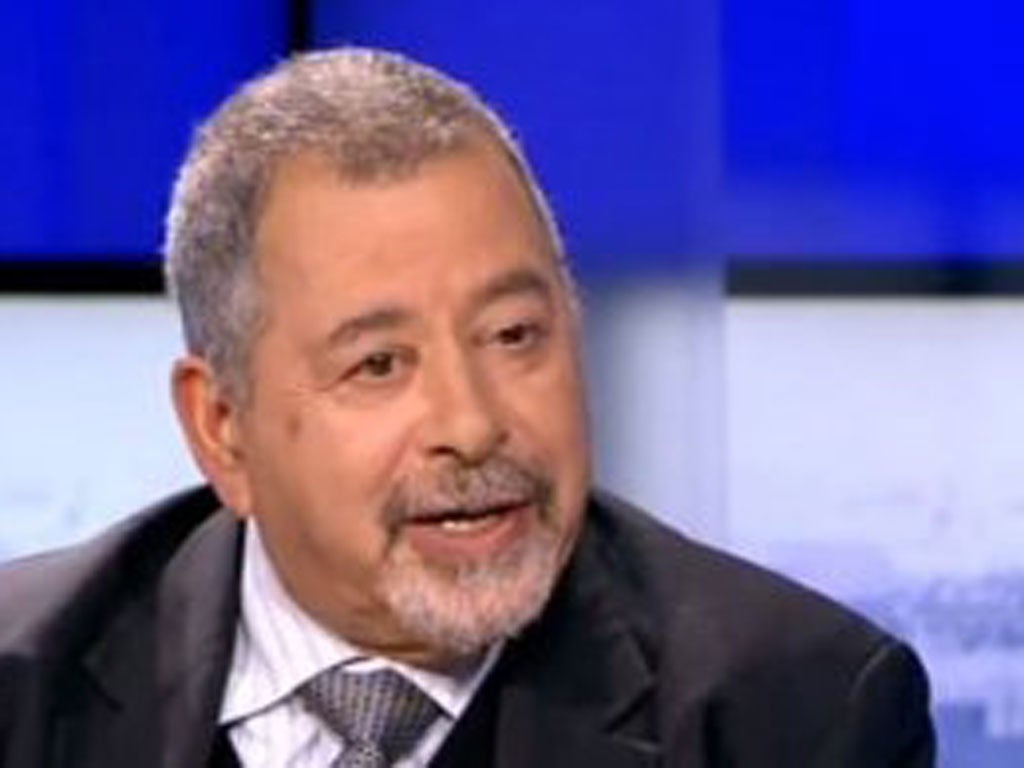Fatah pays tribute to Ilan Halevi - an Israeli Jew who ‘defected’ to the PLO

Your support helps us to tell the story
From reproductive rights to climate change to Big Tech, The Independent is on the ground when the story is developing. Whether it's investigating the financials of Elon Musk's pro-Trump PAC or producing our latest documentary, 'The A Word', which shines a light on the American women fighting for reproductive rights, we know how important it is to parse out the facts from the messaging.
At such a critical moment in US history, we need reporters on the ground. Your donation allows us to keep sending journalists to speak to both sides of the story.
The Independent is trusted by Americans across the entire political spectrum. And unlike many other quality news outlets, we choose not to lock Americans out of our reporting and analysis with paywalls. We believe quality journalism should be available to everyone, paid for by those who can afford it.
Your support makes all the difference.The Fatah movement of Mahmoud Abbas, the Palestinian premier, is planning a memorial for Ilan Halevi, an Israeli Jew who rose high in the Palestine Liberation Organisation. Palestinians paid tribute after the official PLO news agency, Wafa, confirmed that Mr Halevi had died in Paris on Wednesday aged 69.
“We will be holding a gathering for people from all over Palestine and also for Israelis who might want to come,” said Abdullah Abdullah, Fatah’s deputy commissioner for international affairs. Mr Abbas expressed his sorrow at Mr Halevi’s death.
Mr Halevi was born to a Jewish family in France in 1942, the son of a Yemenite Jew who had emigrated to Jerusalem at the turn of the 20th century. At 22, he moved to Israel because, he later recalled, he had realised during a visit to Algeria the resonance of the Palestinian issue among Arabs. “I wanted to learn the Israeli reality,” he told an interviewer many years later.
After the 1967 war, in which Israel occupied the West Bank and Gaza Strip, Mr Halevi became active in Matzpen, a far-left group that sought not only to end that occupation but to overturn the Zionist ideology upon which Israel had been established. According to Matzpen, Zionism was a form of colonialist oppression.
In Mr Abdullah’s view a turning point in attracting Mr Halevi to the Palestinian side came in 1968 when Fatah declared it favoured a secular democratic state in Palestine, without discrimination based on residents’ religion or creed. Mr Halevi was later to identify himself as “one hundred per cent a Jew and one hundred per cent Palestinian”.
In the mid-1970s he joined Fatah and later became a diplomat for the PLO based in Paris. After the 1993 Oslo Accords he moved to Ramallah in the West Bank, where he held a senior role in the nascent foreign ministry of the Palestinian Authority.
Uri Avnery, a veteran Israeli peace activist, believes Mr Halevi was disillusioned because of discrimination against Sephardic, or Middle Eastern, Jews by Israel’s European Jewish establishment. “He had the courage of his convictions and thought the Palestinians were right in their conflict with the Israelis and that he must join them, so he became Palestinian.“
But for many Israelis, who still link the PLO with terrorism, he was a traitor. Uri Dromi, a former spokesman for Yitzhak Rabin, the assassinated Israeli Prime Minister, said: “Halevi crossed the lines, and this is unacceptable for the Israelis'.”
Join our commenting forum
Join thought-provoking conversations, follow other Independent readers and see their replies
Comments